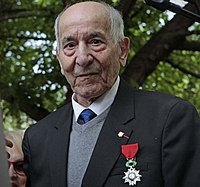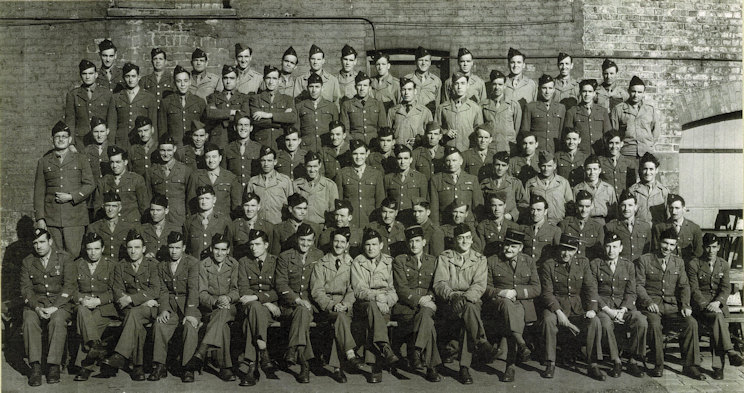 |
Ralph Gomez in 2017 |
Rafael Gomez Nieto - the last survivor of 'La Neuve', the company of Spanish republican soldiers that lived and trained in Pocklington before going on to be the first troops to liberate Paris in August 1944 - has died of coronavirus aged 99 in a Strasbourg nursing home.
His death was announced last week by the office of the French President, Emmanuel Macron, in a statement that said:
"France will not forget its commitment and its sacrifices. We will remain eternally grateful to him and to all of his comrades in combat.The President of the Republic salutes this hero of freedom and sends his most respectful condolences to his loved ones."
The Pocklington Local History Group heard the remarkable story of La Neuve at its meeting in April 2018. It was a company of the Marching Regiment of Chad, part of the 15,000 French sent to the East Riding in 1944 to prepare for D-Day. La Neuve was very different to the rest of the French division as it was made up predominantly of Spanish republicans who had initially fought against Franco in the Spanish Civil War, before joining up with allied forces in North Africa some five years later.
La Neuve spent the summer of 1944 living in Pocklington in the drill hall on Barmby Road. They were in the town for just three months but the brief stay made a lasting impression on each other. After the war Pocklington residents recalled dancing to Flamenco guitars in the town's pubs, and although only 16 of the 160 men who left Pocklington in July 1944 were still standing at the end of the conflict, several of the survivors spoke warmly of their time in Pocklington.
Gomez Nieto in particular never forgot his East Riding experience and made contact with his Pocklington friends following his return home to Algiers; including sending a postcard with new year wishes in 1948 to Vera Kidd, the young daughter of the caretaker of the drill hall who he had befriended during his Pocklington stay.
Rafael Gomez Nieto was born in Adra, southern Spain, on 21 January 1921. He joined the republican forces to fight Franco while still a teenager, taking part in the bloody battle of the Ebro in 1938. When Franco's nationalists prevailed Gomez Nieto crossed the Pyrenees with his family only to be interred in a refugee camp in France.
He was released to go to Algiers and become part of the Free French forces which joined the allies in 1943 in North Africa. Supplied with American arms and equipment the 2nd French Armoured Division was shipped from Cassablanca to East Yorkshire as the countryside was deemed to replicate the terraine it would encounter in the invasion of Normandy.
Leaving Yorkshire behind the division landed on Utah beach on 29 July 1944, and fought its way across France, with La Neuve, who were regarded as the shock troops of the French army, leading the advance. La Neuve were the first troops into Paris on 24 August 1944 with Gomez Nieto driving his armoured halftrack vehicle, nicknamed Guernica, up to the door of Paris' Hôtel de Ville. However, La Neuve's exploits went unrecognised for some 60 years as General de Gaulle covered up their heroics and ensured that French forces were credited with recapturing the French capital; it was not until 2004 that they received official recognistion from the French government.
 |
'La Neuve' outside the drill hall in Pocklington |
After Paris La Neuve fought on, suffering heavy losses in the battle for Strasbourg, then capturing Hitler's Alpine headquarter's, Eagle's Nest, where Gomez Nieto reputedly helped himself to a silver tea service as a trophy.
When World War II ended Gomez Nieto returned to Algiers and became a shoemaker. He relocated to Strasbourg in 1958; and after La Neuve's deeds were finally acknowledged he was presented with the Legion d'Honneur in 2012, then represented his comrades when parks were opened to their memory in both Paris and Madrid. He is survived by his son and three daughters. He also had 14 grandchildren and several great-grandchildren. His wife, Florence López, died in 2015.
Phil Gilbank
9th April 2020.
|

